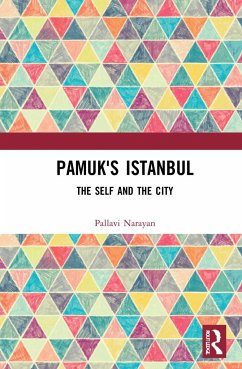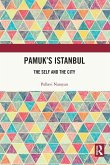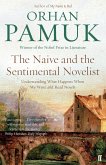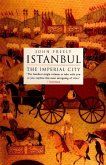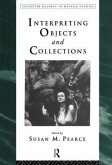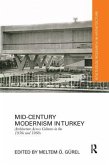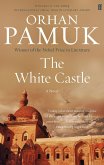This book reconstructs Istanbul through the prism of Orhan Pamuk's fiction. It navigates the multiple selves and layers of Istanbul to present how the city has shaped the writings of Pamuk and has, in turn, been shaped by it. Through everyday objects and architecture, it shows how Pamuk transforms the city into a living museum where different objects converse along with characters to present a rich tapestry across space and time.
Further, the monograph explores the formation of communal and literary identity within and around nation-building narratives informed by capitalism and modernization. The book also examines how Pamuk uses the postmodern city to move beyond its postmodern confines, and utilizes the theories and universes of Bakhtin, Benjamin, and Foucault to open up his fiction and radically challenge the idea of the novel.
The volume will be of great interest to scholars and researchers of literature, literary theory, museum studies, architecture, and cultural studies, and especially appeal to readers of Orhan Pamuk.
Further, the monograph explores the formation of communal and literary identity within and around nation-building narratives informed by capitalism and modernization. The book also examines how Pamuk uses the postmodern city to move beyond its postmodern confines, and utilizes the theories and universes of Bakhtin, Benjamin, and Foucault to open up his fiction and radically challenge the idea of the novel.
The volume will be of great interest to scholars and researchers of literature, literary theory, museum studies, architecture, and cultural studies, and especially appeal to readers of Orhan Pamuk.
"Narayan's well-researched and theoretically informed analysis reads Nobel laureate Orhan Pamuk's work along a spectrum of the modern and the postmodern while revisiting tropes of cosmopolitan subjectivity through an original literary cartography of affect, object, and urban space. Narayan concludes with an insightful scalar shift, placing Pamuk's fiction into a world literary constellation." - Erdag Göknar, translator of My Name is Red by Orhan Pamuk (2001) and author of Orhan Pamuk, Secularism and Blasphemy: The Politics of the Turkish Novel (2013)
"Narayan's captivating book on Pamuk takes an unusual approach-choosing as its focus the subject of architecture and the urban to view the Turkish novelist's work, through the lens of Bakhtin, Benjamin, and Foucault. The actual historical background to the formation of modern Istanbul is skillfully invoked to provide a detailed look at how the architectural plays a central role in Pamuk's complex meditation on identity. At the end, Pamuk devotees will also find a fascinating interview with one of his translators, Maureen Freely, providing some little known details on the background of the books themselves and their translation into English." - Ian Almond, Professor of World Literatures, Georgetown University Qatar
"Pamuk's Istanbul: The Self and the City by Pallavi Narayan brings a powerful critical nuance to Orhan Pamuk's work. Her masterful book captures the materiality of Istanbul, descriptions of characters, time, and spaces that transform the quotidian subject of Istanbul. Her juxtapositions of the modern and secular Istanbul to the rich descriptions of the mahalles of the city offers the reader a unique stroll through a museum-laboratory, Turkish homes, architecture, and the fictional representation of objects. She brings these objects to life as if they were characters in Pamuk's writings. Narayan is bringing Pamuk's Istanbul and his writing to a place of brilliant imagination and new landscapes of thinking. A book that inspires to analyse the depths of Orhan Pamuk's Turkey and its representation in the world of fiction and truth." - Mehnaz. M. Afridi, Professor of Religious Studies, Manhattan College
"Narayan's captivating book on Pamuk takes an unusual approach-choosing as its focus the subject of architecture and the urban to view the Turkish novelist's work, through the lens of Bakhtin, Benjamin, and Foucault. The actual historical background to the formation of modern Istanbul is skillfully invoked to provide a detailed look at how the architectural plays a central role in Pamuk's complex meditation on identity. At the end, Pamuk devotees will also find a fascinating interview with one of his translators, Maureen Freely, providing some little known details on the background of the books themselves and their translation into English." - Ian Almond, Professor of World Literatures, Georgetown University Qatar
"Pamuk's Istanbul: The Self and the City by Pallavi Narayan brings a powerful critical nuance to Orhan Pamuk's work. Her masterful book captures the materiality of Istanbul, descriptions of characters, time, and spaces that transform the quotidian subject of Istanbul. Her juxtapositions of the modern and secular Istanbul to the rich descriptions of the mahalles of the city offers the reader a unique stroll through a museum-laboratory, Turkish homes, architecture, and the fictional representation of objects. She brings these objects to life as if they were characters in Pamuk's writings. Narayan is bringing Pamuk's Istanbul and his writing to a place of brilliant imagination and new landscapes of thinking. A book that inspires to analyse the depths of Orhan Pamuk's Turkey and its representation in the world of fiction and truth." - Mehnaz. M. Afridi, Professor of Religious Studies, Manhattan College

